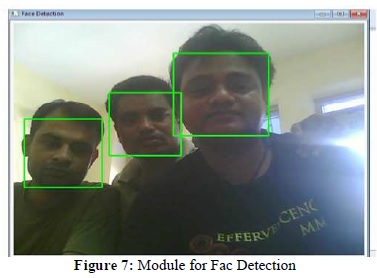Automatic Detection of Fake Profiles in Online Social Network using Soft Computing
DOI:
https://doi.org/10.31033/ijemr.13.3.41Keywords:
Image Analysis, Linguistic Analysis, Social Network Analysis, Behavioral AnalysisAbstract
The proliferation of social media platforms and online communities has led to an increase in the creation and utilization of fake profiles for various deceptive purposes. Detecting these fake profiles is crucial to maintaining the integrity, security, and trustworthiness of online platforms. This abstract provides an overview of the techniques and challenges involved in automatically detecting fake profiles.
The detection of fake profiles poses a significant challenge due to the ever-evolving strategies employed by malicious actors. However, researchers and platform developers have devised several techniques to tackle this problem. Profile completeness analysis examines the information provided by users, such as profile pictures, connections, and consistency of details. Sparse or inconsistent data may raise suspicions of a fake profile. Image analysis involves reverse image searching and analyzing metadata to identify instances of profile picture misuse or manipulation.
Linguistic analysis focuses on analyzing the language used in profile descriptions, posts, and comments. Patterns such as poor grammar, spelling mistakes, or generic content may indicate automated or fraudulent account activity. Social network analysis studies the network structure and connections between accounts, identifying clusters of suspicious profiles with similar connections. Behavioral analysis techniques aim to identify abnormal or bot-like behavior exhibited by fake profiles, such as excessive friend requests, repetitive posting patterns, or spamming.
Machine learning models have emerged as powerful tools for fake profile detection. These models are trained on historical data, learning patterns and features associated with fake profiles. They can then classify new profiles based on these learned characteristics. CAPTCHA or verification tests provide an additional layer of security by deterring automated bot account creation.
Despite the progress made, detecting fake profiles remains a challenge. Adversarial actors continuously adapt their strategies, making it difficult to stay ahead. The privacy concerns and ethical implications surrounding the collection and analysis of user data also present challenges. Additionally, false positives and negatives are common in automated detection, requiring continuous refinement and improvement of detection techniques.
Downloads

Downloads
Published
How to Cite
Issue
Section
License
Copyright (c) 2023 Faisal Farooqui, Muhammed Usman Khan

This work is licensed under a Creative Commons Attribution 4.0 International License.











